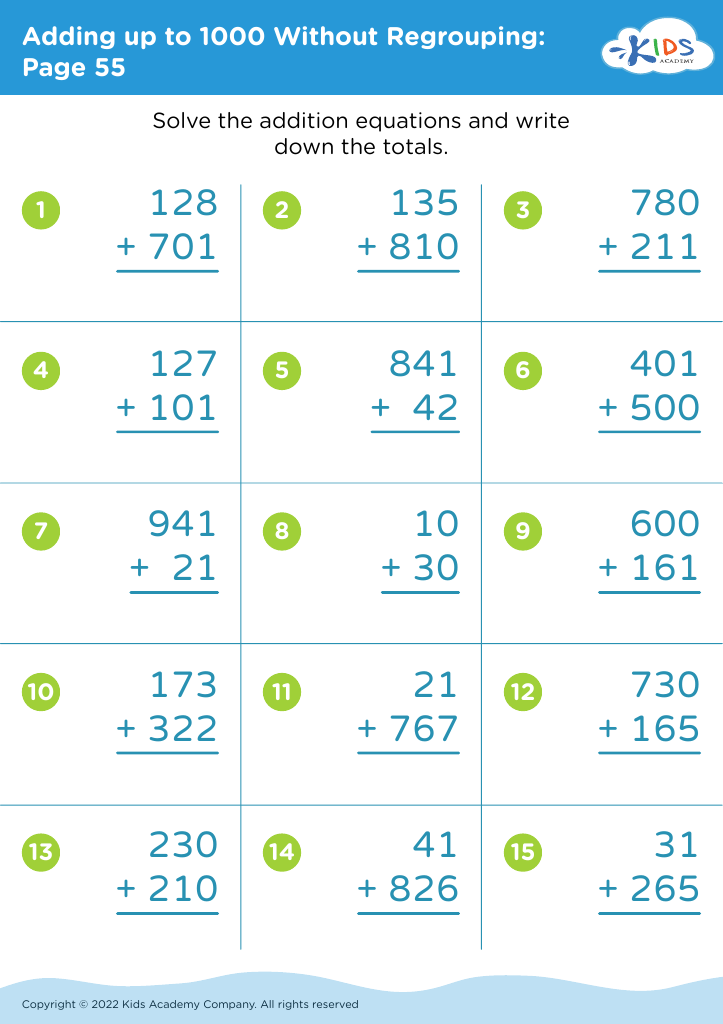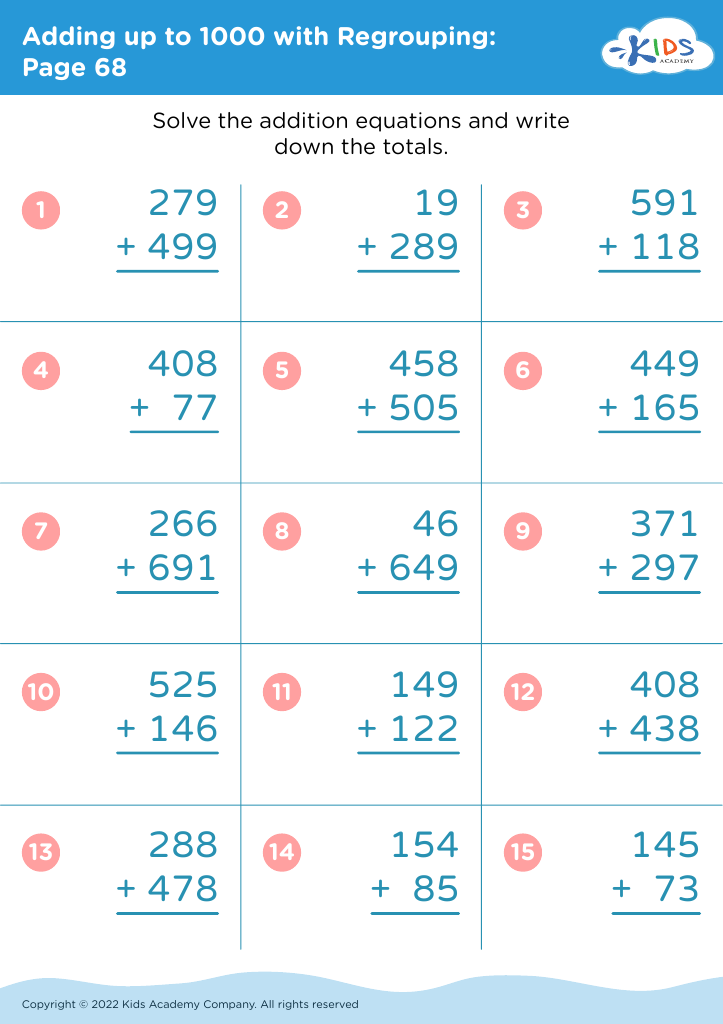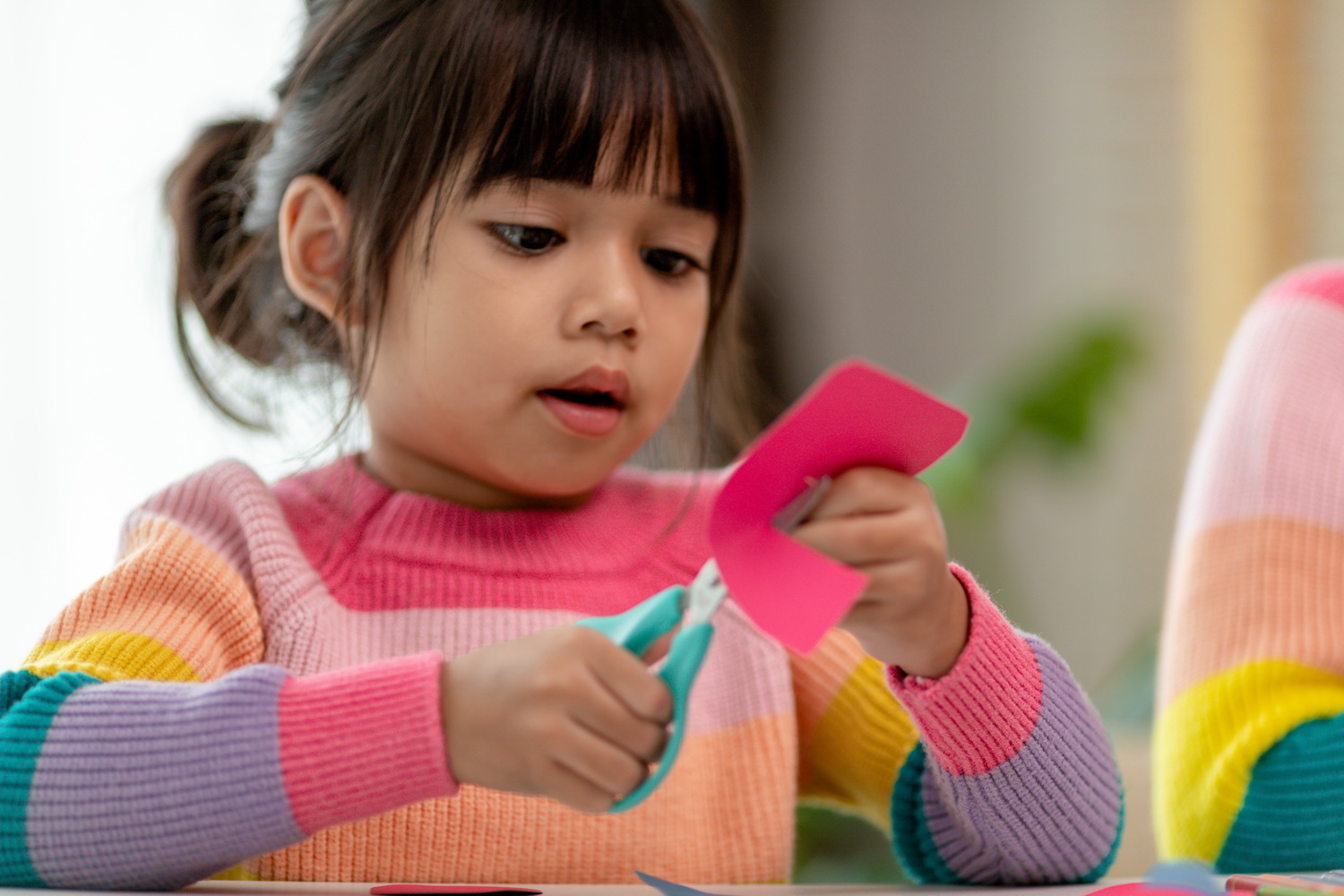Handwriting practice Math Worksheets for Ages 4-9
17 filtered results
-
From - To
Discover our engaging Handwriting Practice Math Worksheets designed for children ages 4-9! These worksheets seamlessly combine essential math concepts with fun handwriting exercises, helping young learners develop both their numerical skills and fine motor proficiency. Each worksheet features a variety of math problems, encouraging kids to practice writing numbers and equations clearly and neatly. Perfect for home or school use, these resources aim to strengthen foundational math knowledge while nurturing good handwriting habits. Watch your child gain confidence in their abilities while mastering important skills in an enjoyable and interactive way. Visit us to explore our collection today!
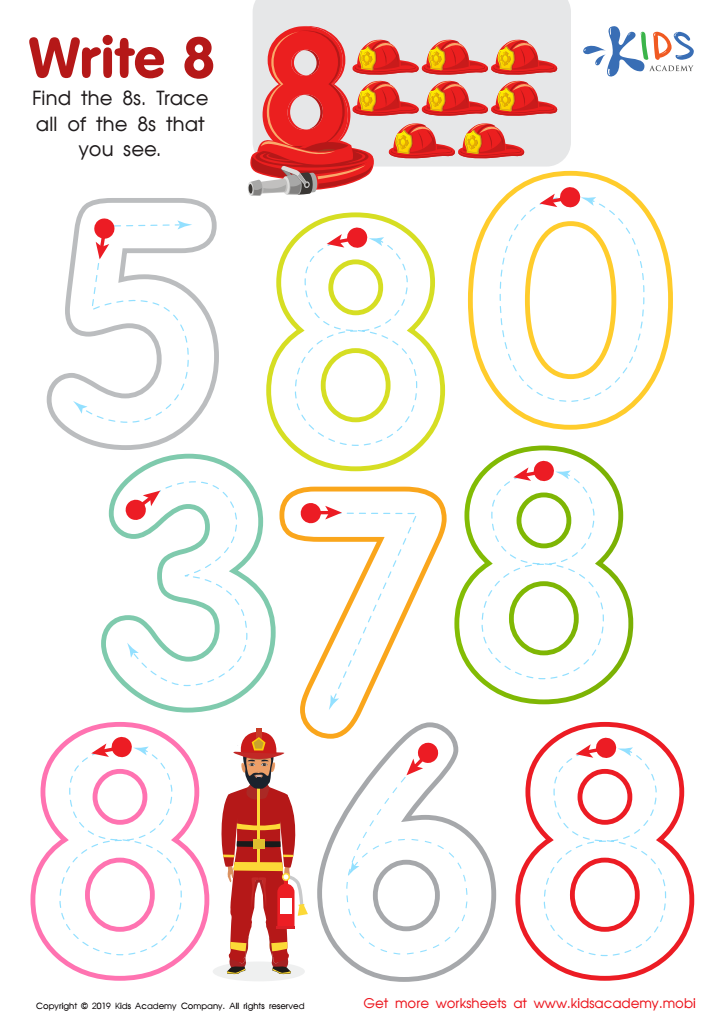

Write 8 Worksheet
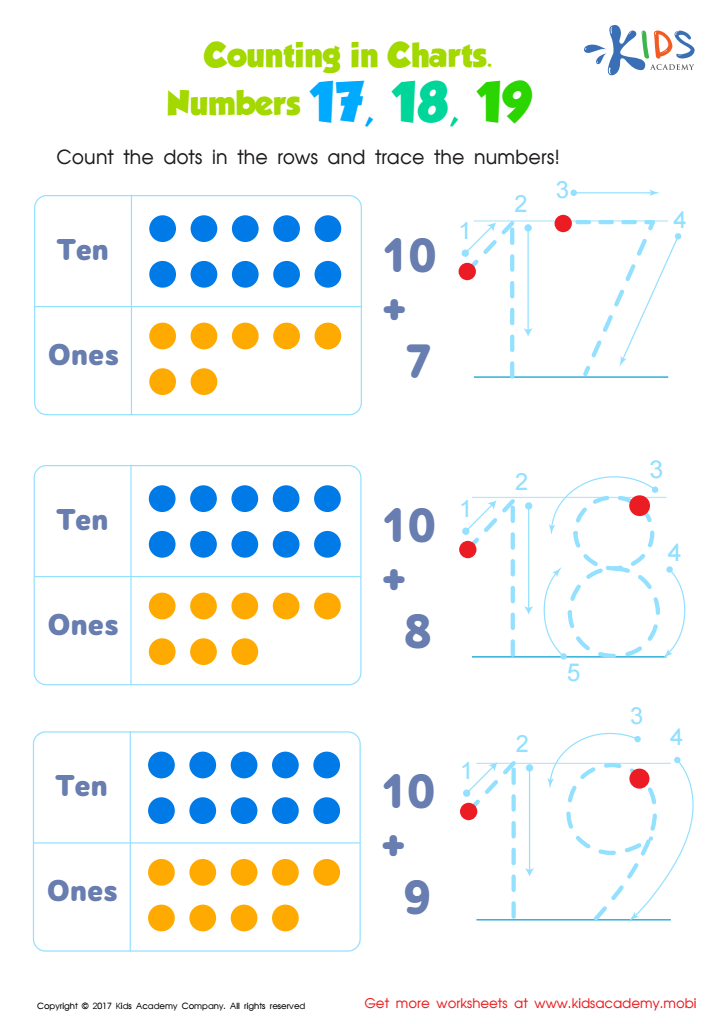

Kindergarten Number Tracing: Counting in Charts Worksheet
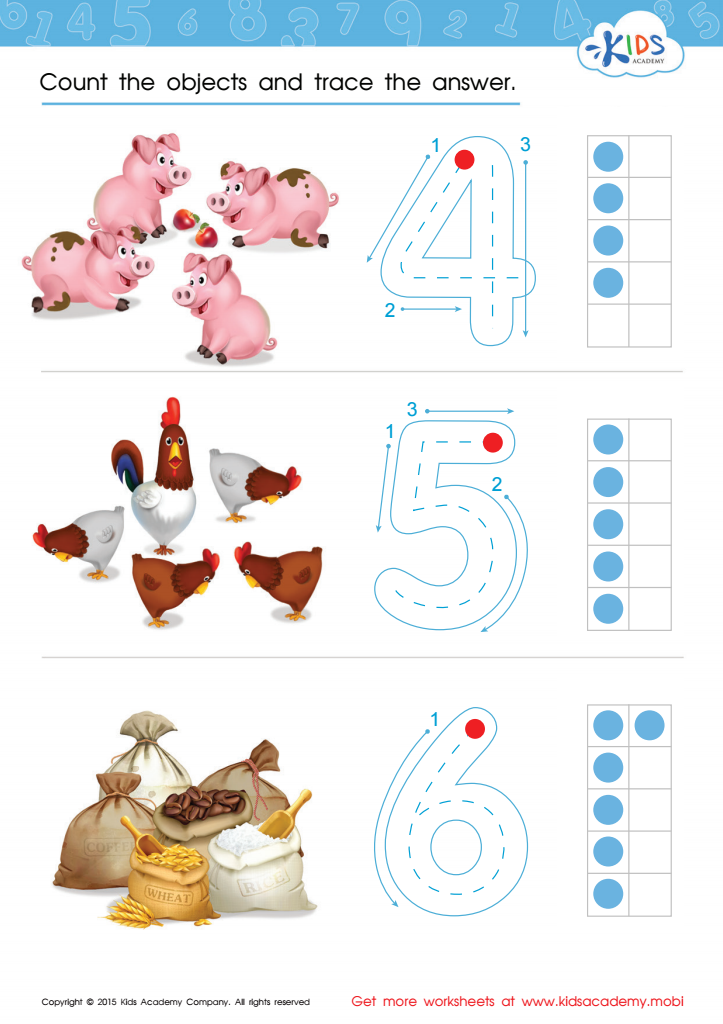

Count and Trace 4 – 6 Worksheet


Number 2 Printable
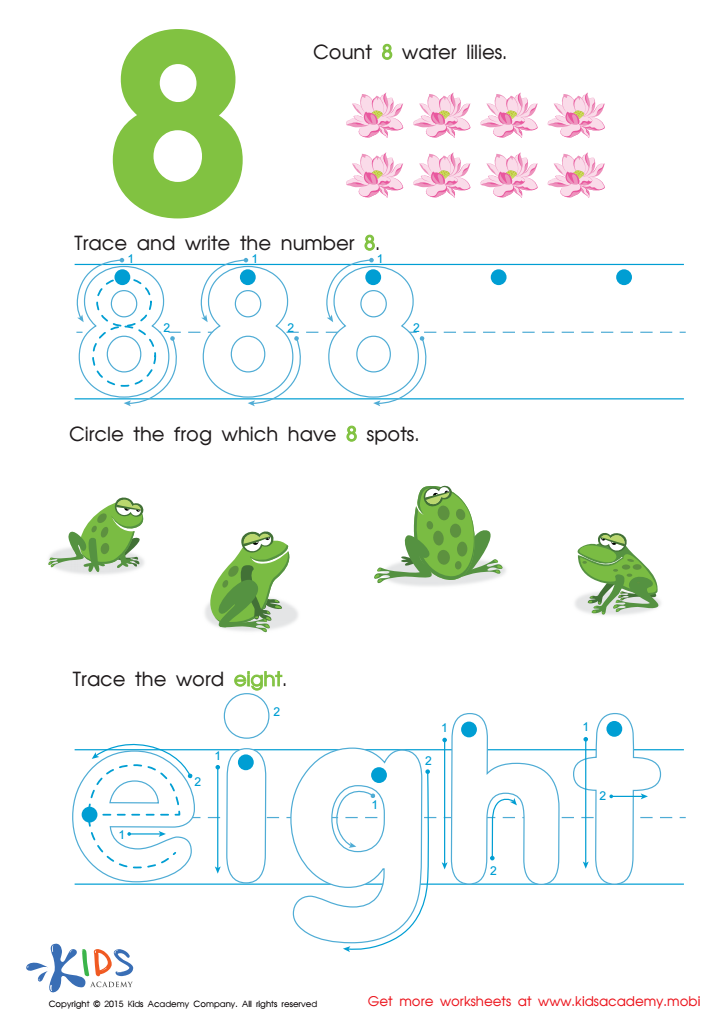

Learn Number 8 Easily Worksheet
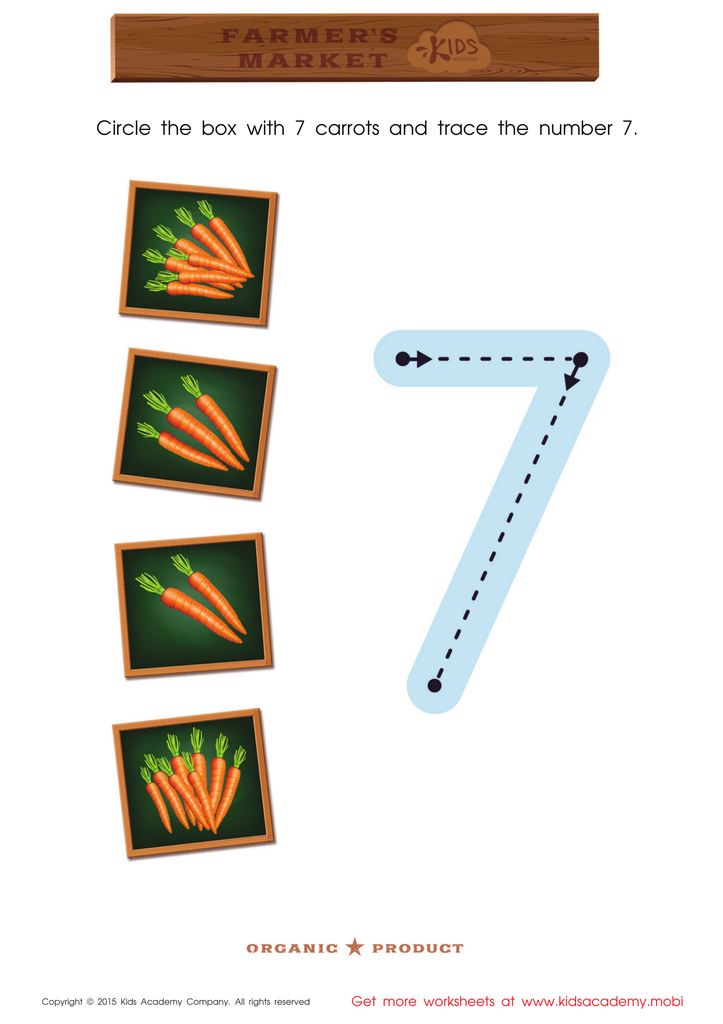

Count the Carrots and Trace the Number 7 Printable
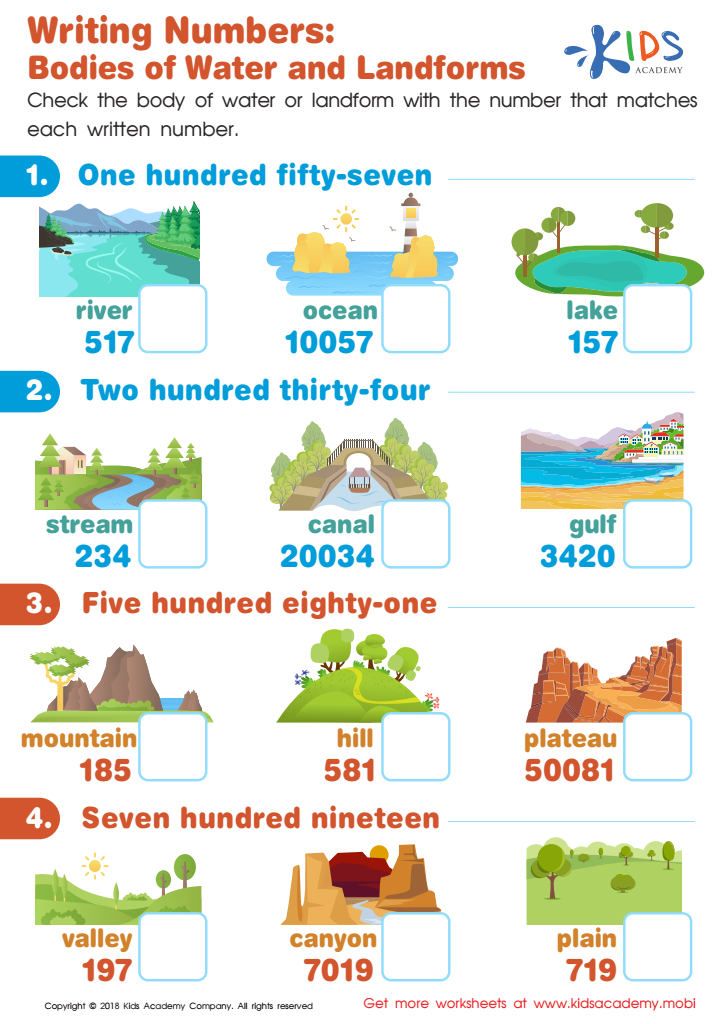

Bodies of Water and Landforms Writing Numbers Worksheet
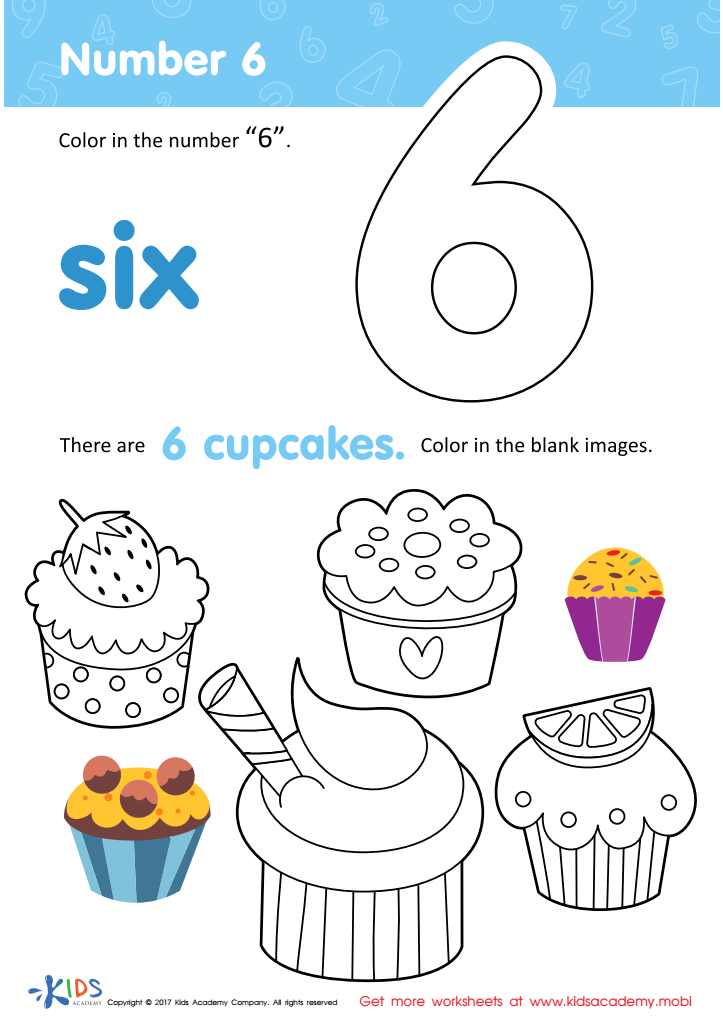

Number 6 Worksheet
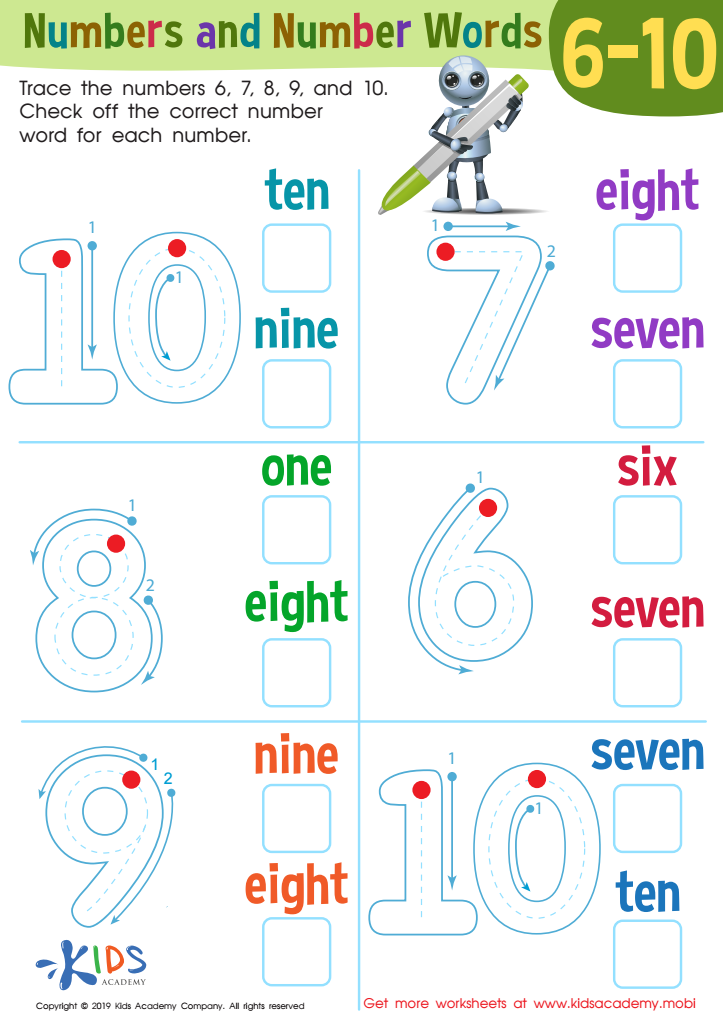

Numbers and Number Words 6–1 Worksheet
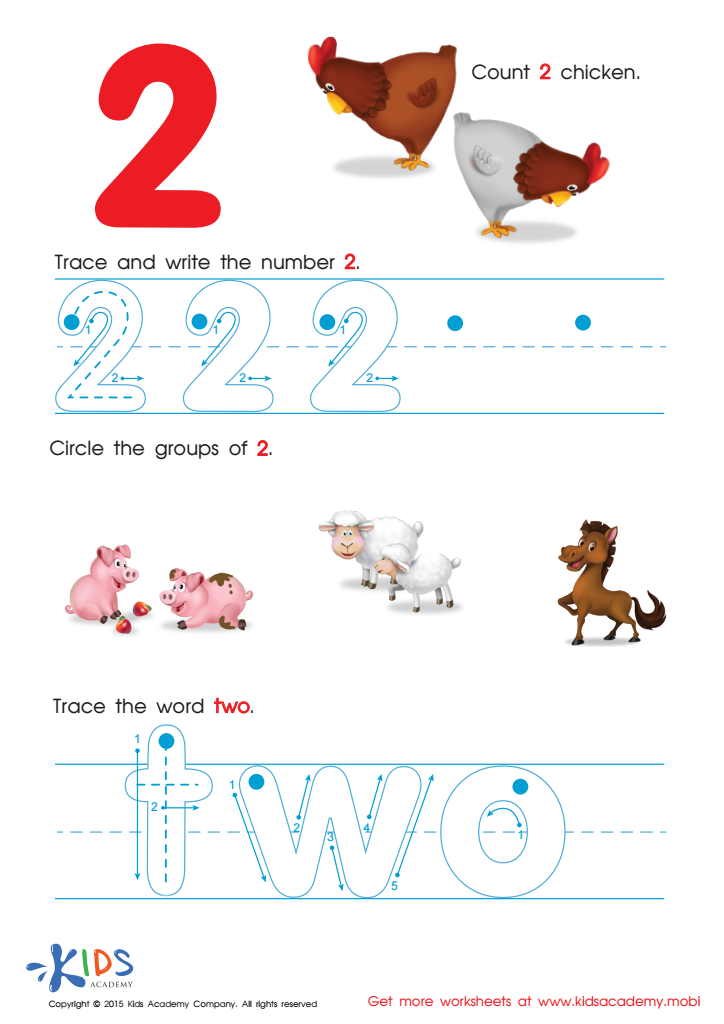

Learn to Write the Number 2 Worksheet
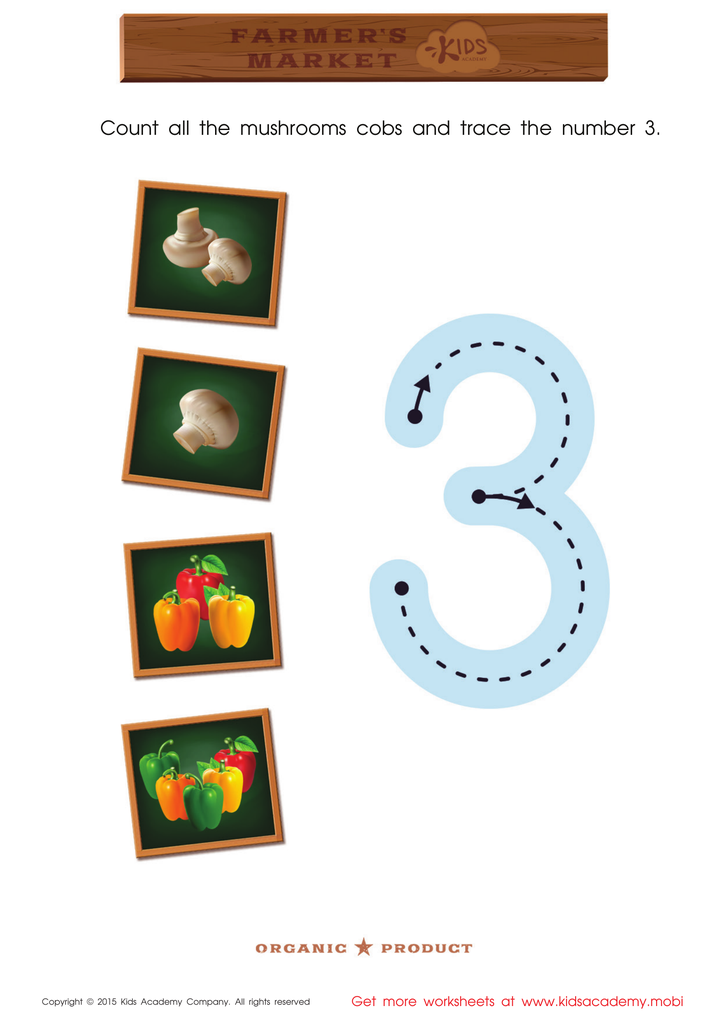

Count the Mushrooms and Trace the Number 3 Printable
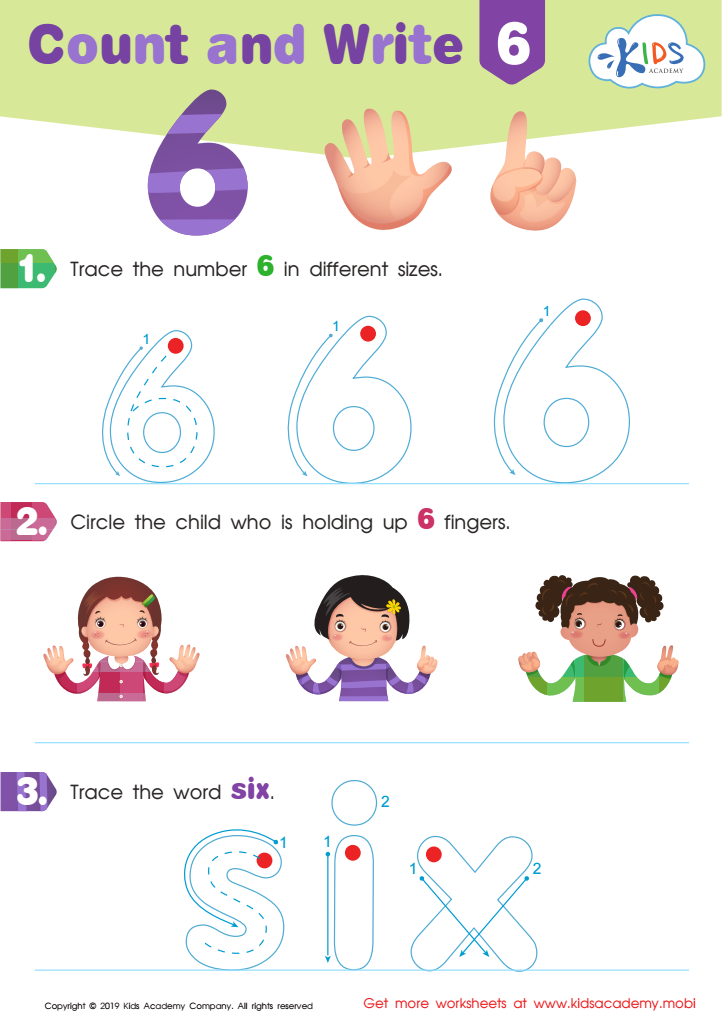

Count and Write 6 Worksheet
Handwriting practice is a crucial element of early education, particularly for children aged 4-9 as they are developing foundational skills in both writing and mathematics. For young learners, handwriting supports cognitive development and enhances fine motor skills, which are essential for both tasks. Handwriting math problems enables children to focus on number formation, shapes, and spatial awareness, which are critical for understanding mathematical concepts.
Integrating handwriting practice in math allows children to learn how to clearly present their work, which fosters better problem-solving skills as they learn to break down complex problems into manageable steps. Additionally, when children write down math problems, they engage more deeply with the material, reinforcing retention and comprehension.
Moreover, improving handwriting can boost a child’s confidence. Neat, legible work minimizes the likelihood of errors and helps teachers and parents accurately assess understanding and progress. Regular practice helps create a strong foundation for future academic success, as many disciplines, including science and language, require clear written communication.
In today's digital age, we often overlook handwriting, but instilling these skills early on ensures that children are equipped with essential tools not just for math, but for lifelong learning. Parents and teachers should prioritize this crucial practice for holistic development.
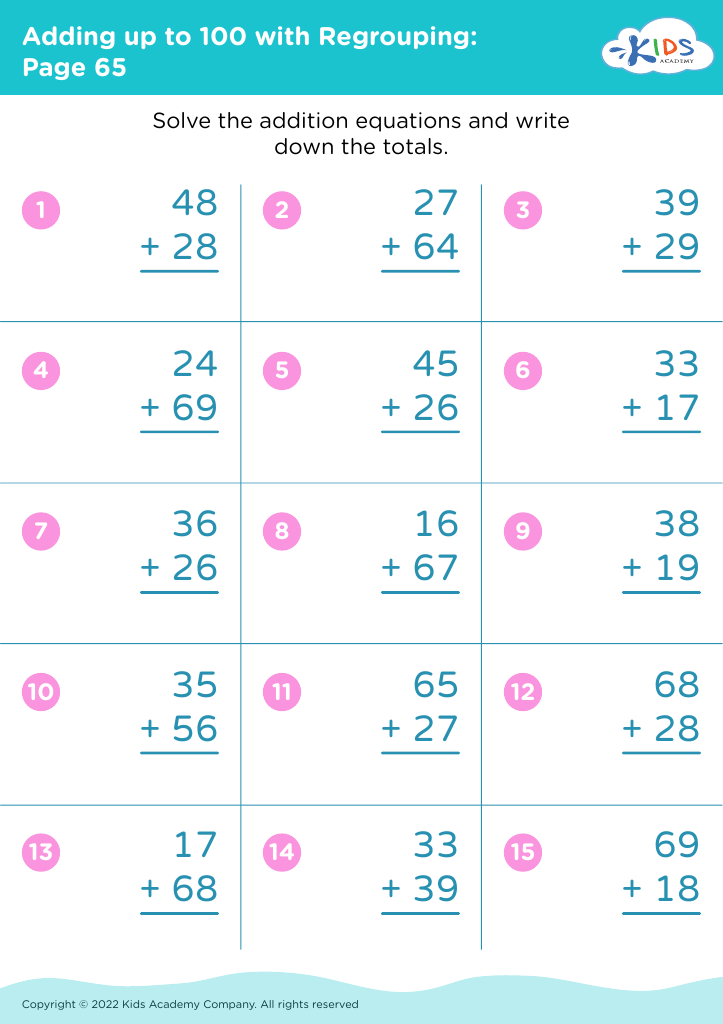



 Assign to My Students
Assign to My Students

